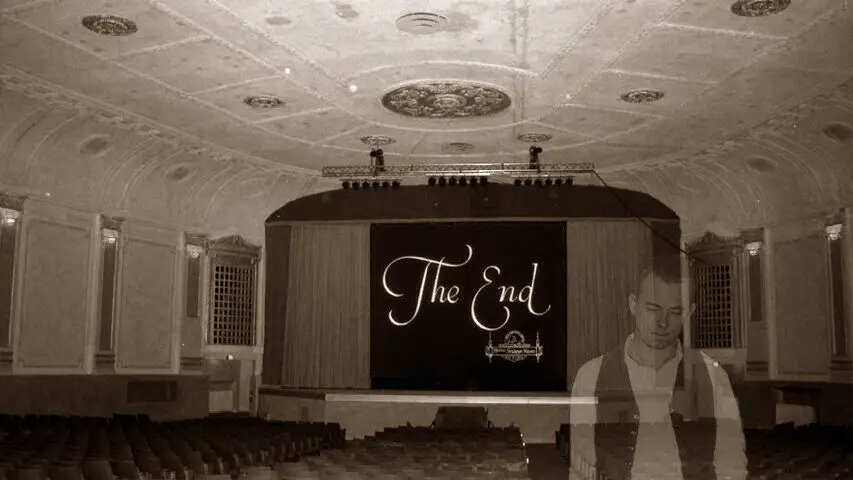|
Getting your Trinity Audio player ready...
|
Not all biographical authors are created equal. There are many brilliant biographies out there. But there are also trashier tell-alls that just cash in on famous names without digging deep.
Some of the most fascinating books that adorn non-fiction shelves are biographies. A good biographer can burrow deep inside the mind. They can shine a spotlight on the subject, the time in which they lived, and the lasting influence they had.
This article looks at 5 of the most authoritative and skilled biographical authors in history. All of them have made a significant impact in the field of biographical writing. The writers we have chosen are Walter Isaacson, Robert Caro, Edmund Morris, David McCullough, and A. J. P. Taylor.
Walter Isaacson
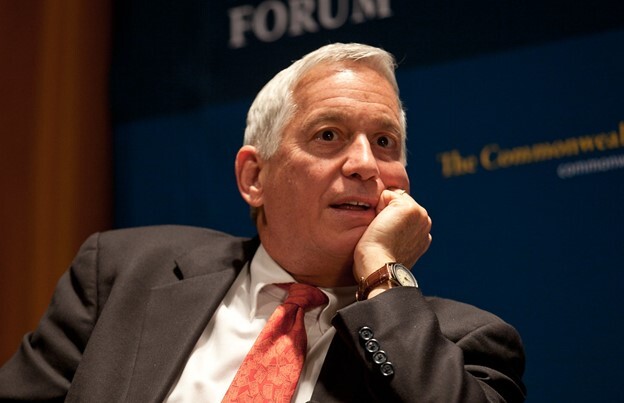
First on our list is Walter Isaacson. An American writer and journalist, Isaacson is known for his captivating and in-depth biographies. These include Steve Jobs, Einstein: His Life and Universe, and Benjamin Franklin: An American Life.
He is a master of capturing the intricacies of his subjects. And because of this, his works are considered among the very best.
His Background
A fiercely intelligent man, Isaacson got his undergraduate education at Harvard University, majoring in both History and Literature. Afterwards, he got a BA from Oxford University, attending as a Rhodes Scholar, studying Philosophy, Politics, and Economics.
Isaccson then worked as a journalist, first in London at The Sunday Times, then the New Orleans Times-Picayune. Later, he became a political correspondent and then head editor for Time magazine, before becoming CEO at CNN. From there, he moved to running the Aspen Institute.
Benjamin Franklin: An American Life
One of Isaacson’s early successful books was his biography on the American legend and Founding Father, Benjamin Franklin. Throughout the biography, Isaacson asserted himself as a top-notch biographical author.
In it, he argues with conviction for Franklin’s importance as a key figure in the Age of Enlightenment. He portrays him, not only as crucial for American history but also to the world for his scientific advances. At the same time, he shines a light on Franklin the person, not just the great man.
The Guardian called the book “lively, readable and affecting…Isaccson admires his subject deeply, and makes us admire him, too.”
Steve Jobs
Walter Isaacson’s best-known and most widely read book, however, is Steve Jobs. The famous and controversial co-founder of Apple commissioned Isaacson to write the book as he was dying. Therefore, he allowed him an unprecedented look behind the curtain at his life.
Isaacson produced a work that is considered one of the best biographies ever on such an important person. The Verge said it “presents the reader with a vast…exceedingly complex—but also incredibly consistent—portrait of the man…”
The book was a huge success, selling over 3 million copies in the States. And it was also adapted into an award-winning film, starring Michael Fassbender, and directed by Danny Boyle.
Robert Caro
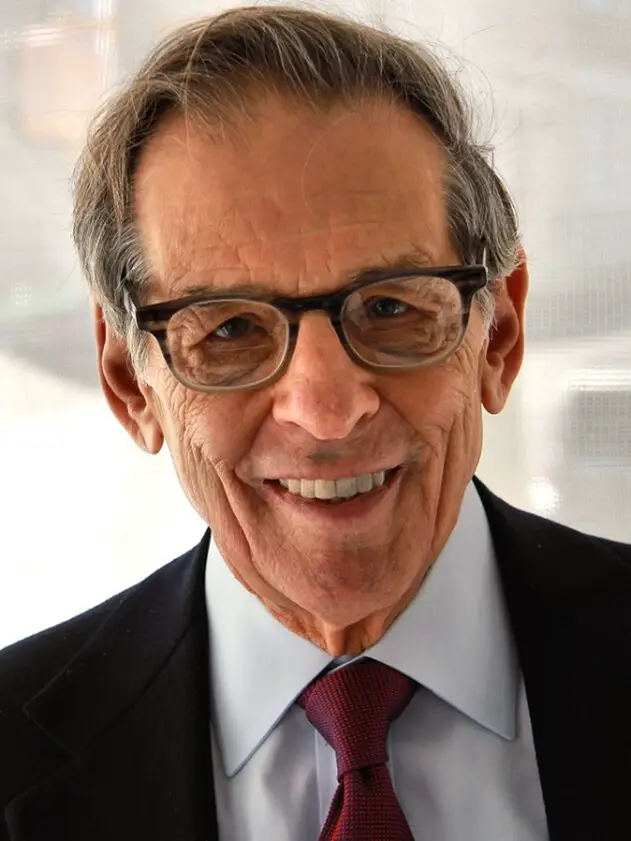
Another of the notable biographical authors is Robert Caro, an American journalist and author.
Robert Caro studied English as an undergraduate at Princeton University. While he was there, he became the managing editor of the student newspaper, The Daily Princetonian. Then after he graduated, he worked as a journalist for The New Brunswick Daily Home News, and then Newsday.
Best known for his monumental biography of Lyndon B. Johnson, it spans four volumes. The most recent one is called The Passage of Power.
Caro is a meticulous researcher and his attention to detail is second to none. His biography of LBJ is considered one of the most comprehensive and authoritative ever written about an American President.
The Years of Lyndon Johnson
Caro’s monumental series on the 36th President of the United States is titled The Years of Lyndon Johnson, and it consists of 4 volumes. Caro plans to conclude the series with a fifth and final instalment.
- The first book, The Path to Power, begins with the President as a child, and takes us through his early political career. This includes his failed attempt in 1941 to run for the US Senate.
- The second book, Means of Ascent, goes on until his ultimate Senate win in 1948.
- Book 3, Master of the Senate, charts the course of his rise in Congress to become majority leader. It dwells on his work on the Civil Rights Act of 1957.
- The fourth book, The Passage of Power, covers his vice presidency up to the presidency after John F Kennedy was assassinated.
The Power Theme in Caro’s work
A running theme throughout Caro’s work is power; how people acquire it and how they use it. In 1965, he began writing a book on Robert Moses, an infamous and controversial New York City planner. It is called The Power Broker – Moses was responsible for the New York look and he also influenced many other American city developments.
Caro expected that the book would take nine months to write but instead it took about nine years. It comprises meticulous research and over 500 interviews. Despite being academically rigorous, what impressed critics most was how beautiful the prose is, making it a great literary work.
Edmund Morris
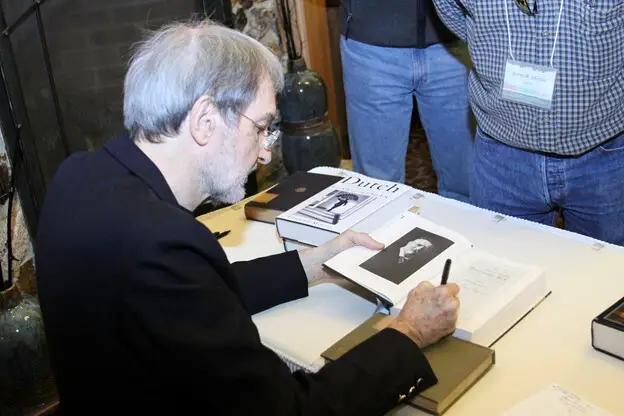
An author who brings a fresh perspective to well-known figures, is Edmund Morris. Morris is best known for his biographies of Theodore Roosevelt. They are The Rise of Theodore Roosevelt, which won the Pulitzer Prize, Theodore Rex, and Colonel Roosevelt.
Morris’s writing is both engaging and informative. He is known for his ability to find new angles in the life of a familiar figure.
His Background
Edmund Morris’s life began in Nairobi, Kenya, where he grew up. As an undergraduate, he studied literature, art, and music at Rhodes University. He never completed his degree, because he dropped out.
Morris worked in a menswear advertising department, where he honed his skill with words, which led to him becoming one of the best biographical authors. He later moved to the United Kingdom, where he continued to work in ad copywriting in London. Then he settled in New York and Connecticut.
Over the years, he wrote on the arts for many famous magazines and newspapers, including The New York Times and The New Yorker.
The Rise of Theodore Roosevelt
At the heart of Morris’s The Rise of Theodore Roosevelt is the idea of Roosevelt as a Renaissance man. He argues that Roosevelt was composed of so many different types, it’s remarkable they were all embodied in one man.
Random House describes him as QUOTE “seven men—a naturalist, a writer, a lover, a hunter, a ranchman, a soldier, and a politician—who merged at age forty-two to become the youngest President in history.”
Morris’s achievement is in drawing all of these elements together into a consistent, compelling portrait of a three-dimensional person.
Theodore Rex and Colonel Roosevelt
The second book in Morris’ trilogy, Theodore Rex, came out over 20 years later, in 2001. Whereas the previous book covered Roosevelt’s rise to power, this one delved into his presidency in great detail. It includes major events such as the building of the Panama Canal and his work in national conservation.
Meanwhile, Colonel Roosevelt took Roosevelt from the end of his presidency to the end of his life. Its argument is that he was the only president who managed to grow even greater after leaving office. Morris shows this with meticulous attention to detail and beautiful prose.
David McCullough
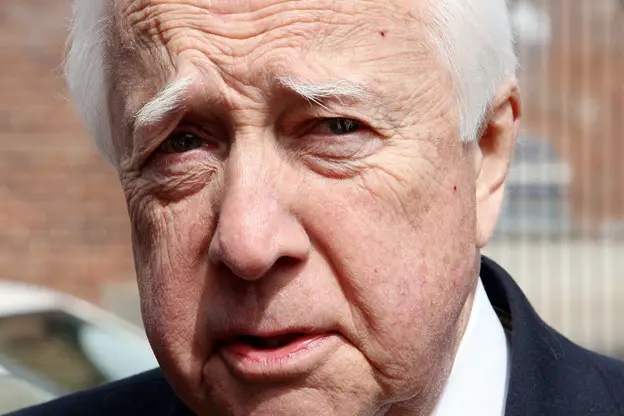
Another author who has made a significant impact in the field of biography writing is David McCullough. The American historian and author is best known for his biographies of American historical figures. These include John Adams and Harry S Truman, which have earned numerous awards, including the Pulitzer Prize.
McCullough’s writing is known for its vivid storytelling and ability to bring history to life. It has made him one of the most respected and popular biographical authors of our time.
His Background
David McCullough attended Yale University in the 1950s, where he majored in Arts and English literature. While there, he apprenticed at Life, Time, American Heritage, and the US Information Agency. He also became friends with famous playwright Thornton Wilder. It was Wilder whom he credited with teaching how to make non-fiction writing as compelling as fiction.
After graduating, McCullough worked for Sports Illustrated, the US Information Agency, and American Heritage as an editor and writer. During his spare time at his last job, he wrote a history book called The Johnstown Flood, which received great acclaim. The New York Times said, “We have no better social historian”. That prompted him to write full time.
Truman
Many consider McCullough’s book Truman, on Harry S. Truman, the 33rd US president, to be one of the best presidential biographies. In 1993, it won the Pulitzer Prize, and in 1995, it was the basis of an HBO movie starring Gary Sinise.
Truman received countless rave reviews. Entertainment Weekly stated that he brought Harry Truman “to life with painstaking clarity”. This was in large part thanks to how it drew on Truman’s own diaries and letters to his wife.
John Adams
McCullough’s other best-known presidential biography is John Adams, about the second president of the United States. Like Truman, it won the Pulitzer Prize and was adapted into a miniseries for HBO starring Paul Giamatti.
It received particular praise for its focus on the love affair between Adams and his wife, Abigail. Walter Issacson himself in Time called it a “masterwork of storytelling” with “sweeping insights”. He described McCullough as having “plucked Adams from the historical haze”.
A. J. P. Taylor
Lastly, we cannot forget about the great British historian, A. J. P. Taylor, who was known for his biographies of historical figures. They include The Habsburg Monarchy 1809-1918 and Bismarck: The Man and the Statesman.
Taylor was known for bringing historical figures to life in a way that was both engaging and informative. This makes his biographies must-reads for anyone interested in history. He is without doubt one of the great biographical authors.
His Background
A. J. P. (Alan John Percivale Taylor) attended Oxford University, graduating in 1927. His post-grad work involved studying in Vienna, which resulted in a book he wrote on Italian unification. He lectured in history at the University of Manchester through most of the 1930s.
From 1938-1976, he was a Fellow of Magdalen College, Oxford University. For a great deal of that time, he was a modern history lecturer. Later, Taylor lectured at University College London and North London Polytechnic, where he became famous for his lectures which were broadcast on television.
The Habsburg Monarchy 1809-1918
Taylor had a fascination with the Hapsburg dynasty, which was reflected in his classic work, The Habsburg Monarchy. His argument centred on the concept that the Habsburgs failed at creating a nation-state. He believed they didn’t care about the realms they held.
Rather, they played the different ethnic groups they ruled against each other while promoting Magyar and German superiority. The book was so provocative that over seventy years later, it was still considered to be a classic.
Bismarck: The Man and the Statesman
What made Taylor’s biography, Bismarck: The Man and the Statesman, stand out was another bold assertion. He argued that Otto von Bismarck didn’t unify Germany on purpose, as most believed. But it was an accident from which Bismarck benefitted. This opposed what most other historians of the time believed.
Taylor’s book on Bismarck is upheld as a great biography because of the way it presents such a complex figure. It has a huge scope, yet still paints a convincing human portrayal of a larger-than-life individual.
Final Thoughts
These are but 5 of the biographical authors who have made a significant impact on the world of literature. Each one brings their own unique perspective and style, making them all worth reading.
Whether you’re looking to learn more about historical figures, or understand the intricacies of the human experience, these authors have something to offer. Their works are considered among the most authoritative and well-written biographies in history.
If you liked this post, you may find my post on some of the best nonfiction authors of interest.
Sources
Steve Job’s biographer is hometown son Walter Isaacson – Dec 11, 2011 – Millie Ball
Q&A with Walter S. Isaacson – May 4, 2016 – William C. Skinner
America’s founding yuppie – July 9, 2004 – Jay Parini
Book Review: ‘Steve Jobs’ by Walter Isaacson – Laura June – October 27, 2011
“Apple Opens Up to Praise New Book on Steve Jobs, and Criticize an Old One” – March 22, 2015 – Brian X. Chen
Robert Caro’s Big Dig – April 12, 2012 – Charles McGrath
Truman – Gene Lyons – June 19, 1992
Best Supporting Actor David McCullough’s John Adams shows the real drama of Revolutionary times – Walter Isaacson – June 18, 2001

